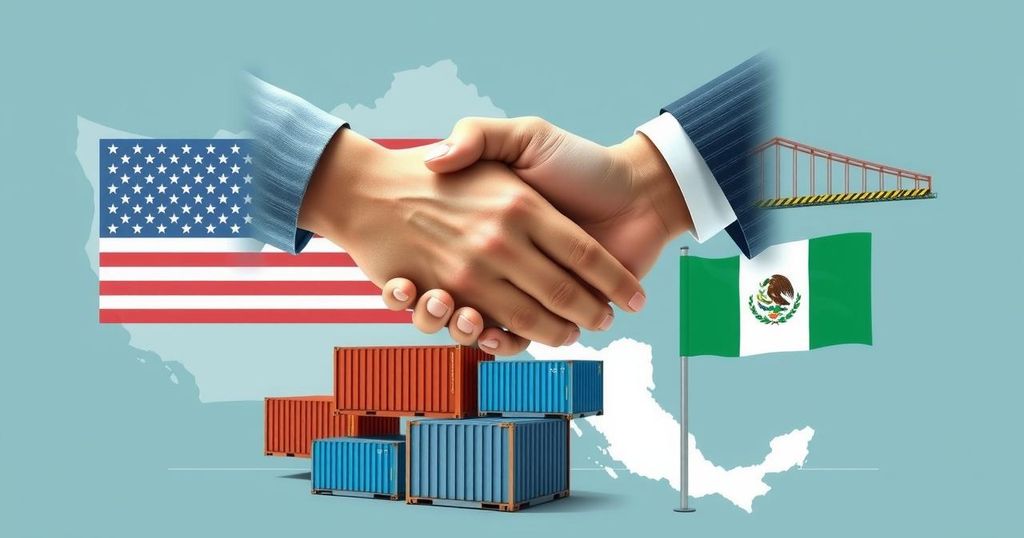Trump’s Tariff Pauses Amid Inflation and Aid Concerns

President Trump’s decision to pause tariffs against Mexico and Canada offers limited respite against inflation concerns while raising issues regarding foreign aid suspensions that impact treatment programs in South Africa. This pause reflects attempts to mitigate economic unrest but creates uncertainty in international humanitarian efforts.
The recent pause on tariffs on imports from Mexico and Canada by President Trump has provided a temporary relief amidst rising concerns over inflation among Federal Reserve officials. This decision has led to discussions within the European Union regarding the potential impact of U.S. trade policies. Concurrently, the U.S. administration’s freeze on foreign aid has raised alarms in South Africa, where significant funding for HIV/AIDS treatment has been affected.
In light of escalating tension over trade policies, President Trump has opted to delay the imposition of tariffs on certain goods from Mexico and Canada, which was initially anticipated to raise costs for American households. This decision has implications not only on the economy but also on international relations, as evidenced by contrary responses from EU leaders. Additionally, the freeze on U.S. foreign aid is causing widespread concern regarding the treatment of millions of global citizens dependent on such assistance, particularly those affected by HIV/AIDS in South Africa.
In conclusion, the temporary halt of tariffs on Mexican and Canadian goods signifies a strategic move by the Trump administration to alleviate immediate inflation threats and foster dialogue with allies. However, the ongoing freeze on foreign aid presents significant humanitarian challenges. The ongoing scrutiny over economic policies suggests a critical junction for U.S. trade relations on the global stage.
Original Source: www.aljazeera.com








